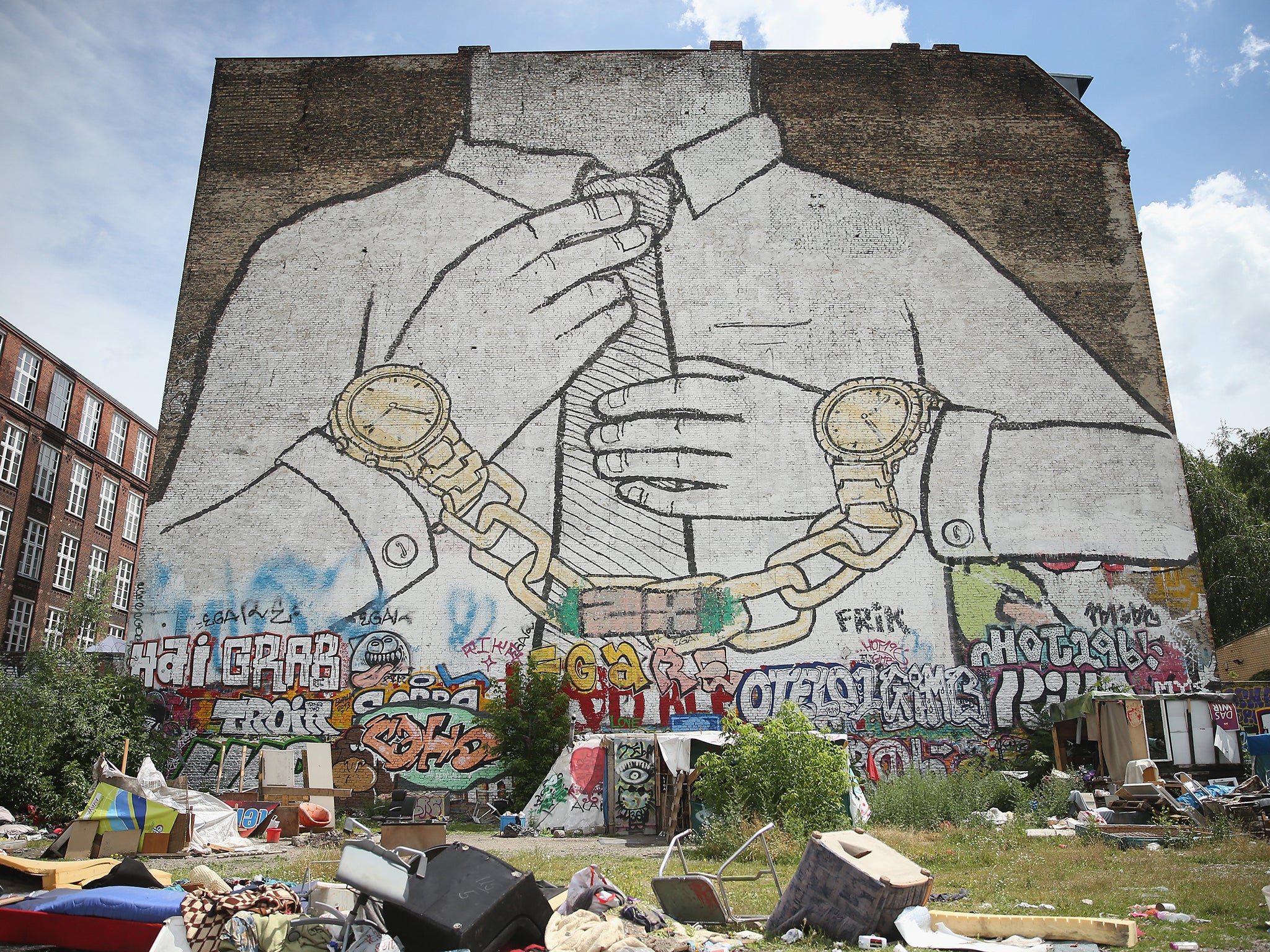Kreuzberg: Berlin's hip district becomes a battleground between dealers and gentrification
Competing visions for Kreuzberg put the spotlight on Germany’s fractured urban culture
Your support helps us to tell the story
From reproductive rights to climate change to Big Tech, The Independent is on the ground when the story is developing. Whether it's investigating the financials of Elon Musk's pro-Trump PAC or producing our latest documentary, 'The A Word', which shines a light on the American women fighting for reproductive rights, we know how important it is to parse out the facts from the messaging.
At such a critical moment in US history, we need reporters on the ground. Your donation allows us to keep sending journalists to speak to both sides of the story.
The Independent is trusted by Americans across the entire political spectrum. And unlike many other quality news outlets, we choose not to lock Americans out of our reporting and analysis with paywalls. We believe quality journalism should be available to everyone, paid for by those who can afford it.
Your support makes all the difference.It has been called “Germany’s biggest drug-dealing centre”, and the description would appear to fit. Even on a grey midweek afternoon with temperatures below freezing, in Berlin’s Görlitzer park it takes a mere 90 seconds after entry before somebody asks the inevitable: “Want to score?”
The dealer said his name was Roberto and that he came from the Gambia. Together with some 40 other African men standing around apparently aimlessly in the near leafless, wintry park, he was selling grass and hashish. He carried only small amounts on his person. The rest was stashed in the bushes.
“OK, you give me €50 for five grams,” Roberto said, without even being asked to make a sale. “OK, €20 for three grams. It’s real good stuff,” he added. Like all the other dealers, he was desperate to make a sale. One of Germany’s growing number of refugees and unable to work by law, Roberto said he had been dealing drugs in the park for four years.
Görlitzer park is an 800-by-200 metre stretch of urban greenery in the midst of the German capital’s hip, alternative Kreuzberg district. It was built on the site of railway sidings in the 1990s to provide recreational space for one of Berlin’s most densely populated boroughs.
But within the space of only a few months the “Görli”, as it is locally known, had become a major headache for Berlin’s city government. At peak times it plays host to around 120 drug dealers. Not all are Africans selling marijuana. White men also arrive from time to time. They sell ecstasy, cocaine and heavier stuff including crystal meth and heroin.
Their customers are largely young tourists attracted to Berlin because of its so-called “poor-but-sexy” reputation and its famed party and clubbing scene. “The Görli has become the place to get stuff to get high for the Easyjet weekend,” said Barbara, a long-standing Kreuzberg resident in her sixties, as she walked her dog in the park.

The Görli’s growing drugs scene is one of the unwelcome consequences of a record influx of refugees into Germany, which is expected to top 200,000 by the end of the year. In November there were 160,000 asylum applications registered nationwide. None of the new arrivals are allowed to work.
The problem has been compounded by Kreuzberg’s authorities. The traditionally Green Party-administered district is anxious not to loose the support of its alternative-scene voters by being seen to clamp down on immigrants. Its mayor has even advocated setting up Germany’s first Dutch-style coffee shop to legalise the sale of soft drugs in a bid to solve the problem. However, unlike in Holland, selling marijuana remains illegal in Germany, although possession of small amounts is tolerated.
Kreuzberg’s Green local authority also finds itself in a bizarre ideological proxy war with the district’s radical left-wing activists. The leftists argue that cleaning up the parks and driving out the dealers will accelerate much-despised gentrification, which has steadily increased since the fall of the Berlin wall in 1989. But the Görli’s drug scene has enraged many residents and Kreuzberg’s bar, restaurant and café owners, who say the dealers’ presence ruins trade. Some say they have had to call police at least 70 times to drive them away.
Last month, two African hash sellers aged 16 and 17 were badly injured in a stabbing incident outside a shisha bar, when its owner got into a dispute with them because they were standing outside his premises. Hours later the bar was wrecked by acquaintances of the dealers.
There have been reports of toddlers finding tiny plastic balls filled with cocaine in the park’s playgrounds. The owner of the Görli’s upmarket Edelweiss restaurant dared to complain in the media that his customers had cancelled wedding receptions and Christmas parties because of the dealers. His car was later torched by radical leftists.
Concerned Kreuzberg residents have launched a liberal citizens initiative that aims to have multicultural “street workers” on duty in the park to help mediate during conflicts. But they too were raided by left-wing activists, who claimed they were racists.
Recently Berlin police stepped up their presence and now patrol the park daily, sometimes in 100-strong groups. Bushes have been pruned and provide less cover, but when the police arrive the dealers simply scatter. “They are back within a few hours,” said dog-walker Barbara, who has lived near Görlitzer for more than 30 years. “They need to be allowed to work. Without jobs, they won’t go away.” There is hope that new legislation allowing asylum seekers to work after spending 15 months in Germany may eventually help to solve the problem.
Join our commenting forum
Join thought-provoking conversations, follow other Independent readers and see their replies
Comments